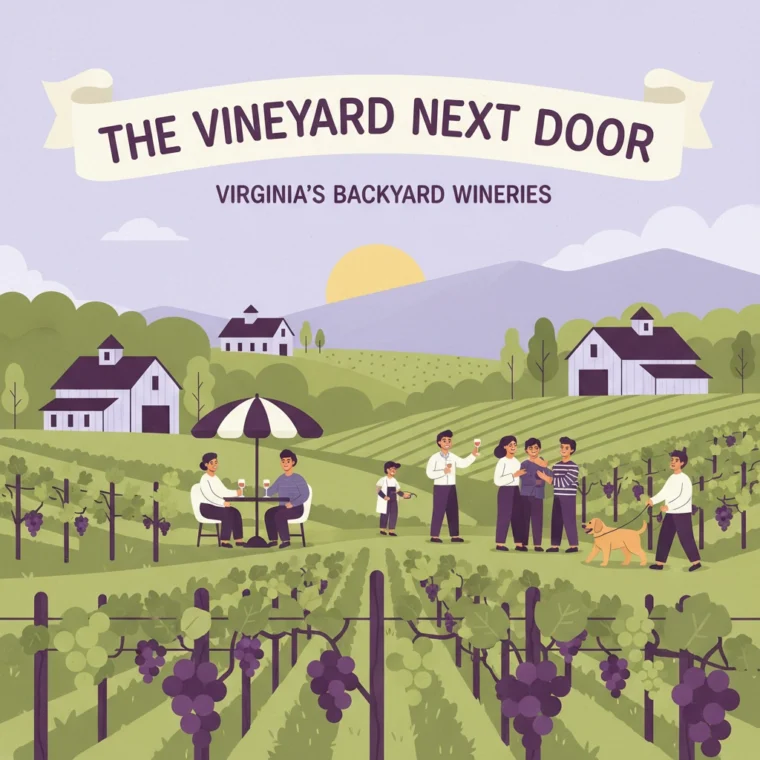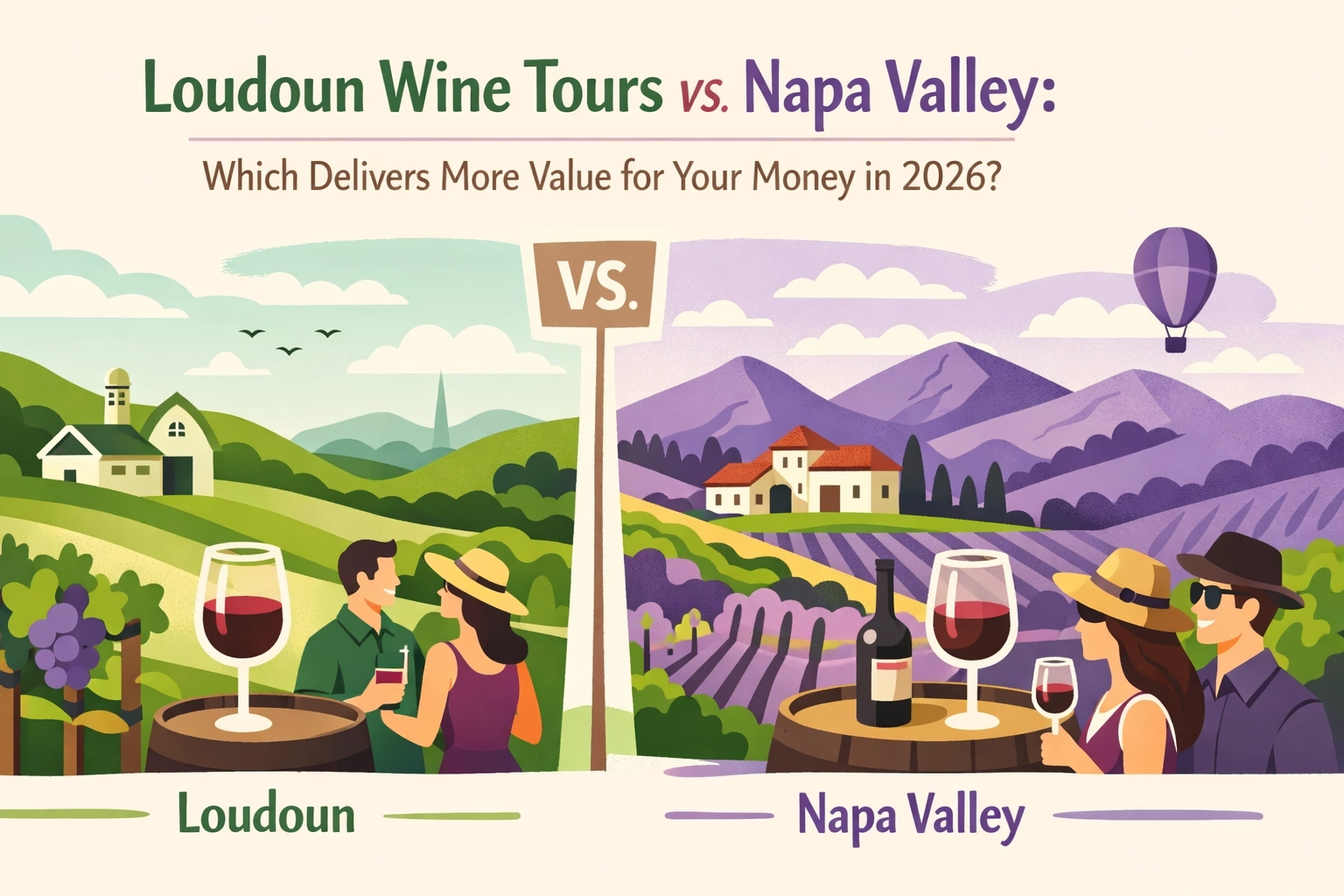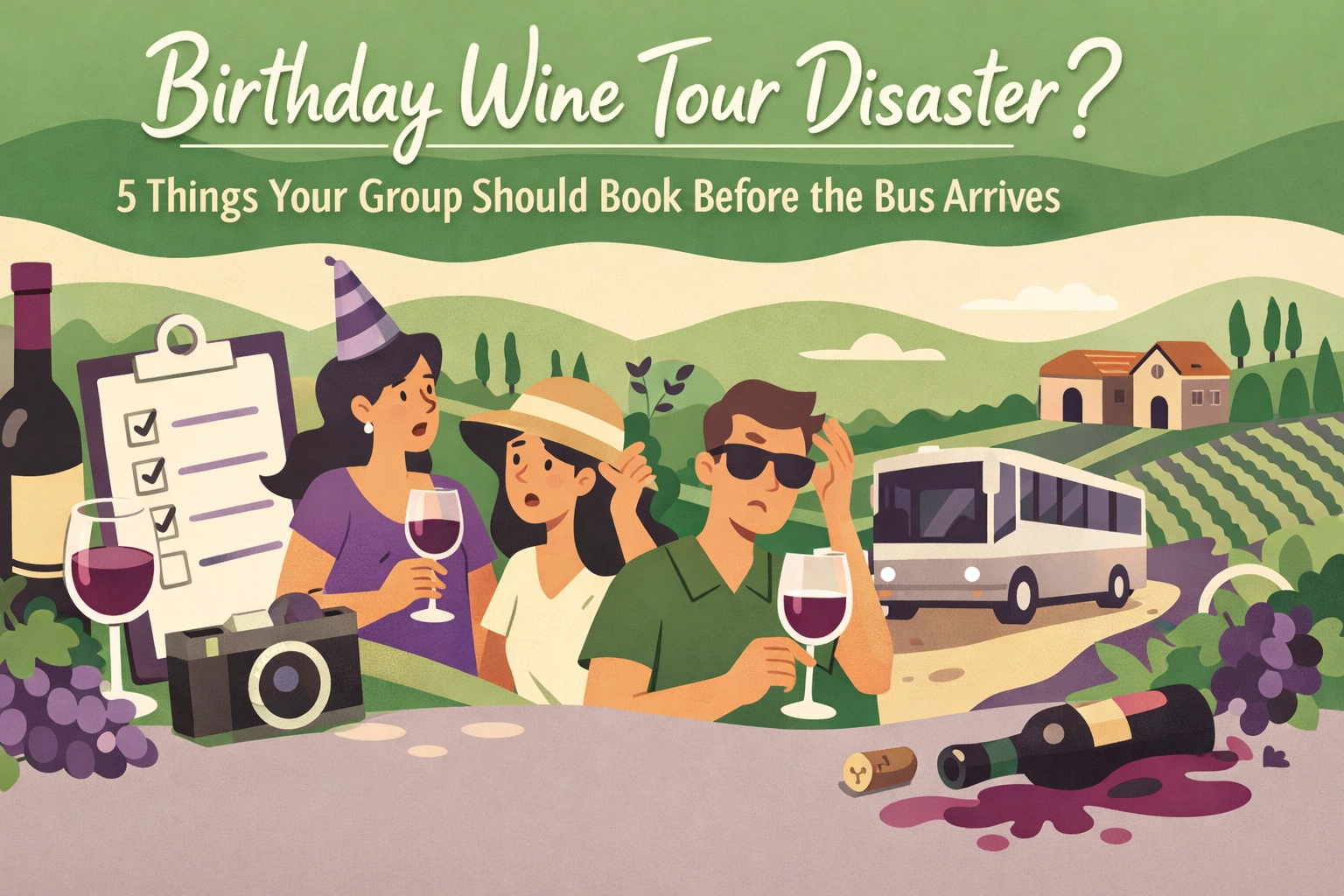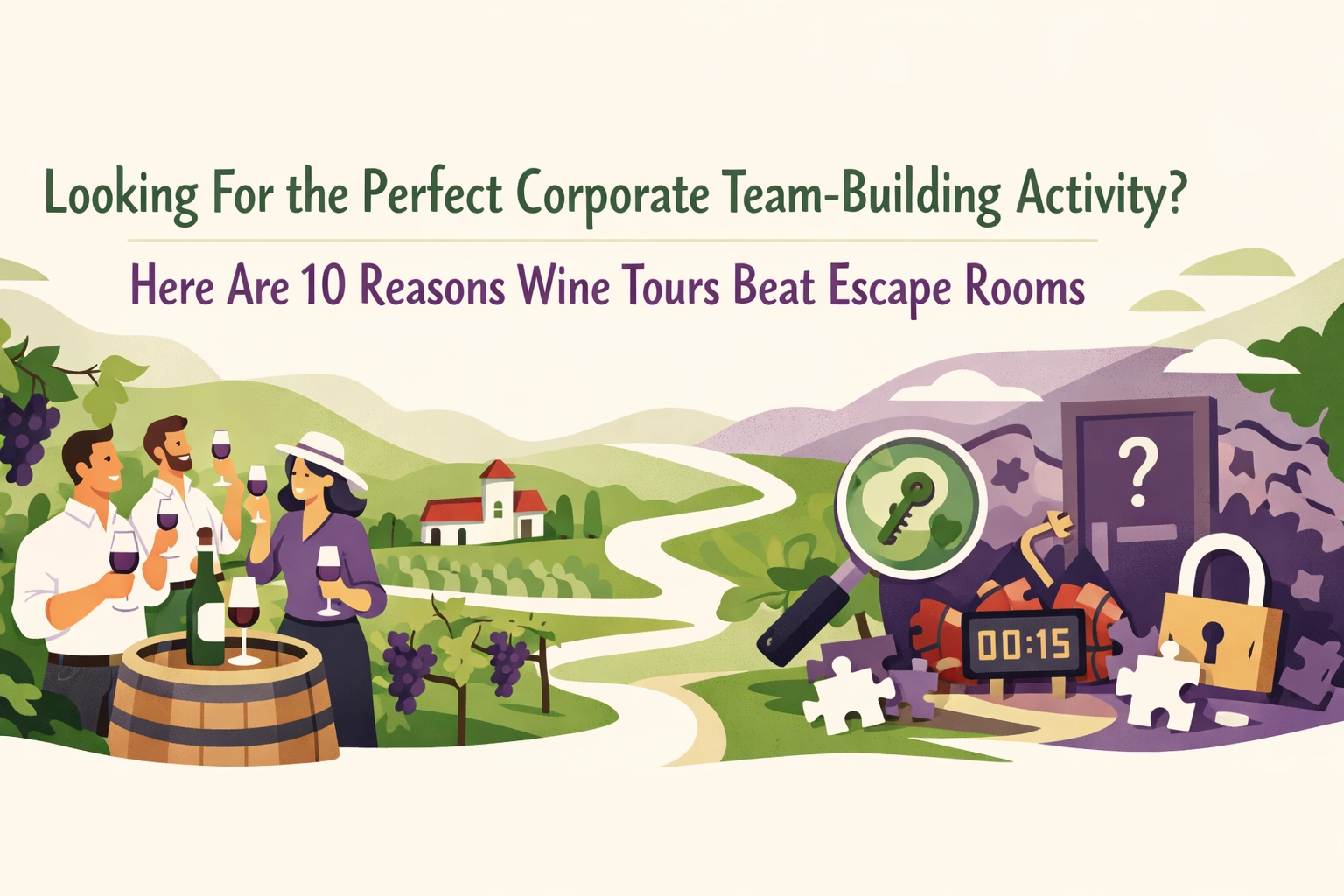Something interesting is happening in wine country. While Napa Valley continues to attract tourists from around the world, a growing number of locals: especially those in the Mid-Atlantic region: are discovering that some of the best wine experiences aren't thousands of miles away in California. They're right here in Virginia, practically in our backyard.
The shift isn't just about convenience, though that certainly helps. Virginia's wine scene has quietly evolved into something special, offering experiences that many feel Napa has lost in its transformation into a luxury destination. Let's explore why more and more wine lovers are choosing Virginia vineyards over the famous California wine region.
The Authentic Experience You've Been Missing
Walk into most Virginia wineries, and you'll likely meet the person who actually made the wine you're tasting. That's becoming increasingly rare in Napa, where many of the original family operations have been bought out by large corporations or investment groups.
Virginia's wine industry has deliberately maintained its boutique character. From barely 100 wineries in 2007, the state has grown to over 330 today, but the focus remains on small-scale, family-owned operations. These aren't faceless corporate entities: they're passionate winemakers who often live on the property and genuinely love sharing their craft.

At these smaller Virginia wineries, conversations flow naturally. You might find yourself discussing harvest techniques with the owner while their dog wanders through the tasting room, or getting an impromptu tour of the barrel room because the winemaker has a few extra minutes. It's the kind of personal connection that made Napa famous in the first place, before it became too successful for its own good.
Your Wallet Will Thank You
Let's talk numbers, because they tell a compelling story. The average tasting fee in Napa Valley has skyrocketed to $38, with reserve tastings often approaching $72. That's nearly triple what visitors paid just over a decade ago. Add in the cost of accommodations, dining, and transportation, and a Napa weekend can easily become a significant financial commitment.
Virginia offers a refreshing alternative. Most tastings range from $15 to $25, and many wineries waive the fee with a bottle purchase. You can enjoy a full day touring multiple vineyards without breaking the bank, making it realistic to explore wine country regularly rather than treating it as a once-a-year splurge.
This affordability factor is particularly appealing to locals who want to make wine touring a regular hobby rather than a special occasion. When you can visit Virginia wine country for a weekend without major financial planning, it becomes a lifestyle rather than just a vacation.
Virginia's Unique Wine Identity
Virginia isn't trying to be Napa: it's developing its own distinct wine personality, and that's exactly what makes it special. The state's terroir combines mineral-rich Piedmont soils with a climate influenced by both the mountains and the Atlantic Ocean, creating growing conditions that produce wines with a character all their own.

Viognier has become Virginia's signature white grape, producing wines with stone-fruit flavors, crisp acidity, and subtle honeysuckle notes that you simply can't find anywhere else. The grape thrives in Virginia's climate in ways that surprise even experienced wine drinkers who associate it primarily with France's Rhône Valley.
Red wine lovers aren't left out either. Cabernet Franc has found a particularly happy home in Virginia, producing elegant reds with complexity that rivals those from more famous regions. Unlike Napa's heavy emphasis on Cabernet Sauvignon and Chardonnay, Virginia's diversity means each winery visit offers the potential to discover something completely new.
The variety extends beyond just grape types to winemaking styles. Virginia winemakers aren't bound by the expectations that come with famous appellations. They're free to experiment, blend, and create unique wines that reflect their individual vision rather than conforming to established regional styles.
History You Can Taste
One of Virginia's most compelling advantages is how seamlessly wine touring integrates with American history. This isn't just marketing: it's authentically woven into the landscape and culture of the region.
Thomas Jefferson's influence on Virginia wine is well-documented, but it's more than just historical trivia. Many Virginia wineries sit on land that has been part of the American story for centuries. You might taste wine while overlooking Civil War battlefields, or visit a winery housed in a converted colonial-era building.

The Loudoun wine country particularly excels at this historical integration. Colonial towns like Leesburg provide the perfect backdrop for modern tasting rooms, creating an experience that's both sophisticated and deeply rooted in place. You can easily combine wine tasting with visits to historic sites, antique shopping in century-old towns, or simply enjoying landscapes that have remained largely unchanged for generations.
This historical depth adds layers to the wine touring experience that purely agricultural regions can't match. Each glass of wine becomes connected to a broader story about American agriculture, innovation, and perseverance.
The Local Advantage
Perhaps the most underrated aspect of Virginia wine touring is simply the convenience factor for Mid-Atlantic residents. While getting to Napa requires flights, rental cars, and hotel reservations, Virginia wine country is accessible for day trips or easy weekend getaways.
This accessibility has created a different kind of wine culture. Rather than being tourists, locals can become regulars. You might discover a favorite winemaker and follow their seasonal releases, participate in harvest events, or simply enjoy the changing seasons from your favorite vineyard terrace.
The shorter travel distances also make it practical to visit multiple regions within Virginia during a single trip. You could start your morning in Northern Virginia's wine country, have lunch in historic Leesburg, and finish your afternoon at a completely different type of winery, all without the logistics nightmare that multi-region touring requires in more spread-out wine destinations.
Recognition Where It's Due
The wine industry has taken notice of Virginia's emergence. The Wall Street Journal has referred to Northern Virginia as "The Next Napa Valley," and wine publications regularly feature Virginia wineries in their coverage of emerging American wine regions.
This recognition isn't just media hype: it's backed by consistent medal wins at national wine competitions and growing respect from sommeliers at top restaurants. Virginia wines are appearing on wine lists at establishments that once sourced exclusively from established regions, signaling broader industry acceptance of the state's quality and potential.

The awards and accolades matter because they validate what locals are discovering through experience: Virginia produces wines that can compete with any region in the country, often at a fraction of the cost and with far more personal attention.
Creating Lasting Memories
What ultimately drives people to choose Virginia over Napa isn't just about wine: it's about the complete experience. Virginia wineries excel at creating memorable moments that feel both special and authentic.
Whether you're planning a romantic weekend, celebrating with friends, or looking for a unique venue for a special occasion, Virginia's wine country offers something that feels both sophisticated and welcoming. The combination of excellent wine, beautiful landscapes, rich history, and genuine hospitality creates experiences that visitors want to repeat and share.
For those ready to discover what locals are raving about, choosing the best winery tour can help you make the most of Virginia's wine country. The region offers everything that made Napa famous in its early days: passionate winemakers, beautiful vineyards, and exceptional wines: with the added benefits of accessibility, affordability, and authentic personal connections.
Virginia wine country isn't trying to replace Napa Valley; it's offering something different and, in many ways, better suited to today's wine lovers who value authenticity over status and experiences over expensive bottles they might never drink. The vineyard next door might just surprise you with how much it has to offer.




